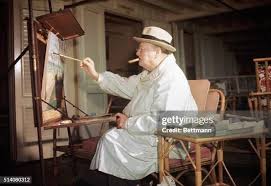Winston Churchill: His Life, Legacy, and Impact on History

Introduction
Winston Churchill, a pivotal figure in 20th-century history, is best known for his leadership of the United Kingdom during World War II. His influence shaped not only the course of the war but also post-war Britain and beyond. As a statesman, military leader, and writer, Churchill’s legacy continues to resonate today, making him a subject of interest for historians and the general public alike.
Churchill’s Early Life and Political Career
Born on November 30, 1874, into an aristocratic family, Churchill was educated at the Royal Military Academy Sandhurst. He began his career as a soldier but quickly transitioned into journalism and politics. Churchill entered the House of Commons in 1900 as a Conservative but later crossed the aisle to join the Liberal Party. His political career was marked by a series of positions, including First Lord of the Admiralty during World War I, where he was involved in the disastrous Gallipoli campaign.
Leadership during World War II
Churchill’s most significant contributions came during World War II. Following the resignation of Neville Chamberlain in May 1940, Churchill became Prime Minister. His fierce determination and stirring speeches rallied the British people during some of their darkest hours. Notably, his speeches, such as “We shall fight on the beaches,” inspired resilience and unity against the Axis powers. His collaboration with allies, including US President Franklin D. Roosevelt, proved crucial in strategizing military operations.
Post-War Impact and Later Life
After WWII, Churchill’s political fortunes changed as he lost the 1945 general election. However, he returned to power in 1951, echoing the concerns of the Cold War era. His famous Iron Curtain speech in 1946 highlighted the emerging divide in Europe. Churchill’s impact extended beyond politics; as a prolific writer, he won the Nobel Prize in Literature in 1953 for his historical works.
Conclusion
Winston Churchill passed away on January 24, 1965, but his legacy endures. His leadership during World War II remains a benchmark for resilience in the face of adversity. Today, Churchill is often invoked in discussions about leadership, courage, and the complexities of foreign policy. Understanding his life and contributions offers valuable insights into contemporary political challenges and the importance of steadfast leadership.









